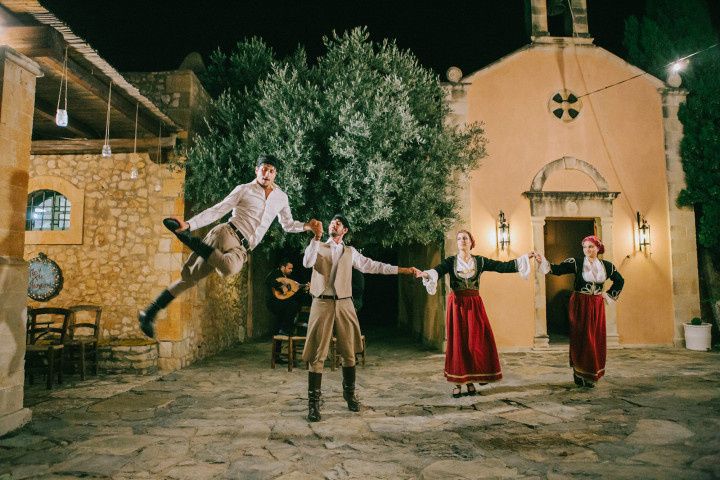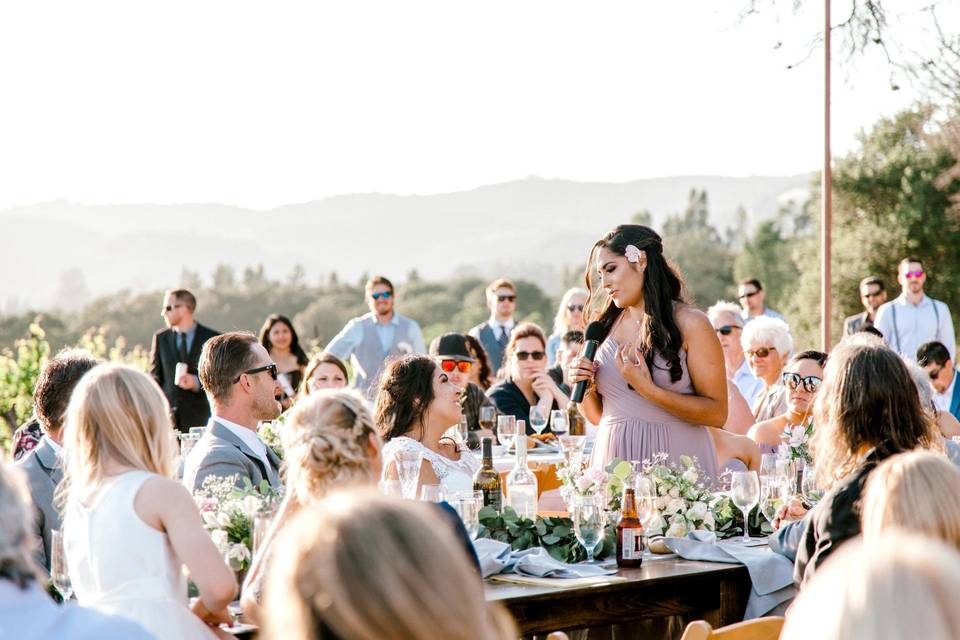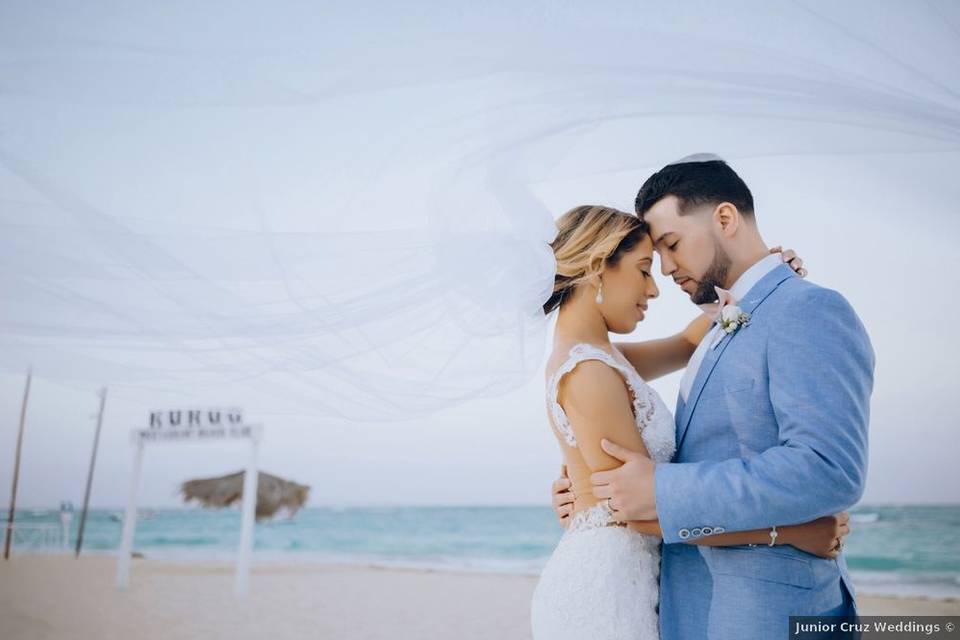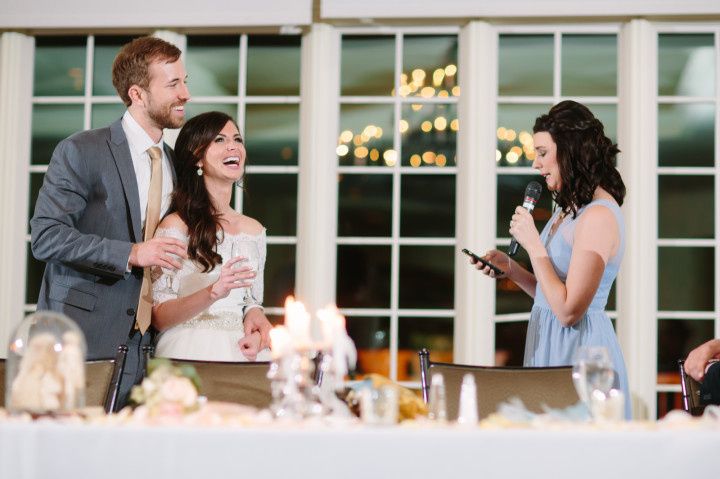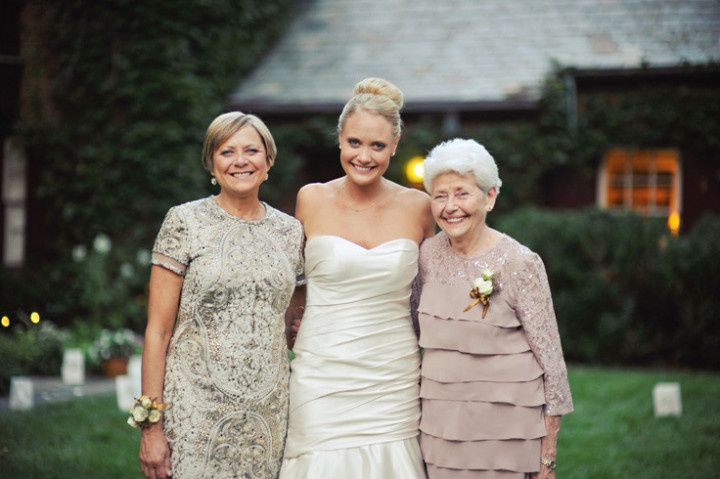Here’s How to Decide if a Wedding Tradition is Right for You
We admit, some traditions may seem a bit outdated. Here’s how to decide which wedding traditions you can skip, and which to keep.
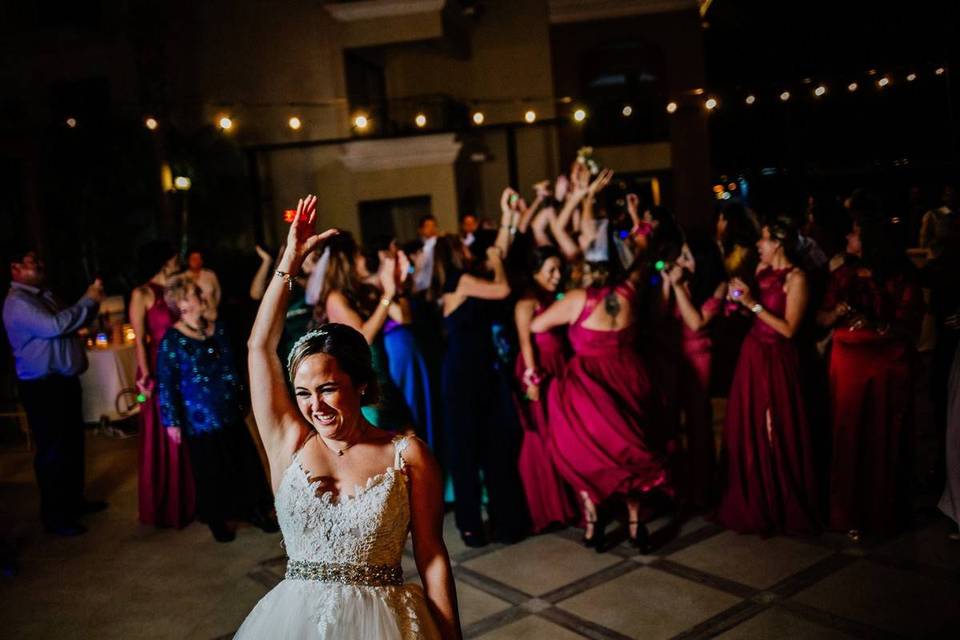
The utter bliss of being engaged to your partner is a period unlike any other. And it’s needed since it’s quickly replaced with the stress of planning a wedding. Regardless of how many celebrations you’ve been part of or attended, nothing can quite prepare you for the experience of managing your own nuptials. In addition to budgeting and compromising, couples are also tasked with the pressure of upholding religious or family wedding traditions—or skipping them. While wedding planner Camille Ross says the wedding industry has long evolved from the days of cake and punch in the church hall, many duos struggle to navigate the expectations from their collective histories. Should you have a ‘first look,’ even if it will upset your parents? Do you honor the cultural customs of your ancestors, even if you don’t identify with their beliefs?
Here, wedding professionals share their best advice on navigating these tricky situations and deciding if you can skip a wedding tradition—or keep it.
Figure out if you can put a modern spin on it.
From the flowers to the plating, couples zero in on every aspect of their wedding. It’s normal to want to get the details right, but the same attention should be given to decisions surrounding traditions. As Laura Maddox of Magnolia Celebrates in Atlanta recommends, you should look into why the wedding tradition originated and then decide if you are comfortable with its execution for our big day. And if you’re not, get creative with modern spins that will make your parents happy, but still, feel comfortable.
As an example, Maddox says in a traditional Jewish ceremony, the groom breaks a piece of glass. This is meant to represent the destruction of the Jewish temple in Jerusalem, and the finality of the marriage covenant. It basically says: ‘What has been done on this day can never be undone.’ Some brides may not like the male-directed message this sends, yet they want to illustrate the staying-power of their marriage. A common compromise, Maddox explains, is that the couple breaks the glass together, as a team, signifying a united force.
Consider the logistics.
Though, in theory, a tradition might sound stellar on paper, in practice, it could cost a pretty penny. Or, be a nightmare to execute. Before opting into a time-honored ritual, Margaux Fraise of Harmony Creative Studio in Santa Monica, California suggest thinking critically about the logistics of what putting off a tradition will require. “We’ve come across parents who expected a locked card box, a stack of envelopes for guests to use at the welcome table, or a detailed sign-in sheet that corresponded with each guest's envelopes for an official accounting of each guests' gift,” she shares as an example. “We’ve run into families from different parts of the country who wanted to incorporate regional wedding traditions like Pennsylvania cookie tables, groom's cakes, University fight songs, second-line parades, burying the bourbon — the list goes on and on.”
It could be well-intentioned, but if it will end up sending your budget into the deep end, it’s essential to express your concerns to your family members. “Figuring out what exactly is involved with following a tradition might determine whether it's for you or not due to logistics or just being cost-prohibitive,” she adds.
Think about your emotional attachment.
If you’re on the fence about keeping a tradition or removing it from your festivities, Jen Avey of Destination Weddings Travel Group, suggests asking yourselves this question: ‘Who will this decision impact other than us?’ While, yes, it is, first and foremost, an important day for your relationship, it’s also one that signifies the beginning of two families joining together. “Talk with important family members to get an idea of the traditions that are important to them, and in turn, will be important for you to consider more thoughtfully,” she explains.
Remember, though, even if your grandmother wants you to wear her gown, there’s a way to honor that wish without sacrificing what you want. As Avey suggests, ask them if you can take a piece of the gown and use it in your veil or as your bouquet wrap. “This way, you’re still carrying a piece of it with you on the big day,” she adds.
Make a pro-con list.
Pour yourself a bottle of wine, order takeout and sit down to go over wedding planning details together. After all, you’re starting a lifelong commitment, so you should be able to hash through pros and cons as a team. This is the most effective strategy, according to Kristin Wilson of Our DJ Rocks in Apopka, Florida. “If you’re stuck in a decision and don't know which way to go, start a Google Doc and write down all the pros and all the cons. It will help you clarify and easily draw some sort of line on which direction you should take,” she shares. “I think it’s important to honor family, culture, and heritage, but it’s also important not to stray too far from your vision. If there is a way to include their ideas to fit in somehow with your vision, honor that and make it a memorable moment to remember years down the road.”
Consider finances.
Some wedding traditions are rooted in finances that no longer matter for modern couples. Especially since most duos pay for their own celebration, it’s easy to let go of some old customs. As an example, David Berke of eWed Insurance says a bride’s family is supposed to pay for the wedding, but if they can’t afford it, you should still continue to say “I do.” “Understanding how to make the most of your budget is an important factor in making decisions about traditions. It can even save you money on choosing to be more authentic to who you are than going by traditions that were started by other people,” he continues. “You don’t need to have a diamond engagement ring if diamonds aren’t your style. You don’t need to have roses if one of you is allergic. If your budget is limited, consider all options—traditional or not.”
Choose a few traditions, but not all.
Once you have this list, Gwen Helbush of Where to Start Wedding Management in Newark, California suggests narrowing down your list of traditions that you’re considering. Once you see them all on paper, you can start to weed through them and determine which ones make the most sense. In some cases, you may not have time to do all of them, but you could prioritize the ones you value the most. “You can toss a bouquet or not. You can cut a cake or a pie, or you might not cut anything. Your options are limitless,” she continues. “It depends on your willingness to think outside-the-box or your desire to stay in-the-box. It's up to you and isn't that wonderful?”

